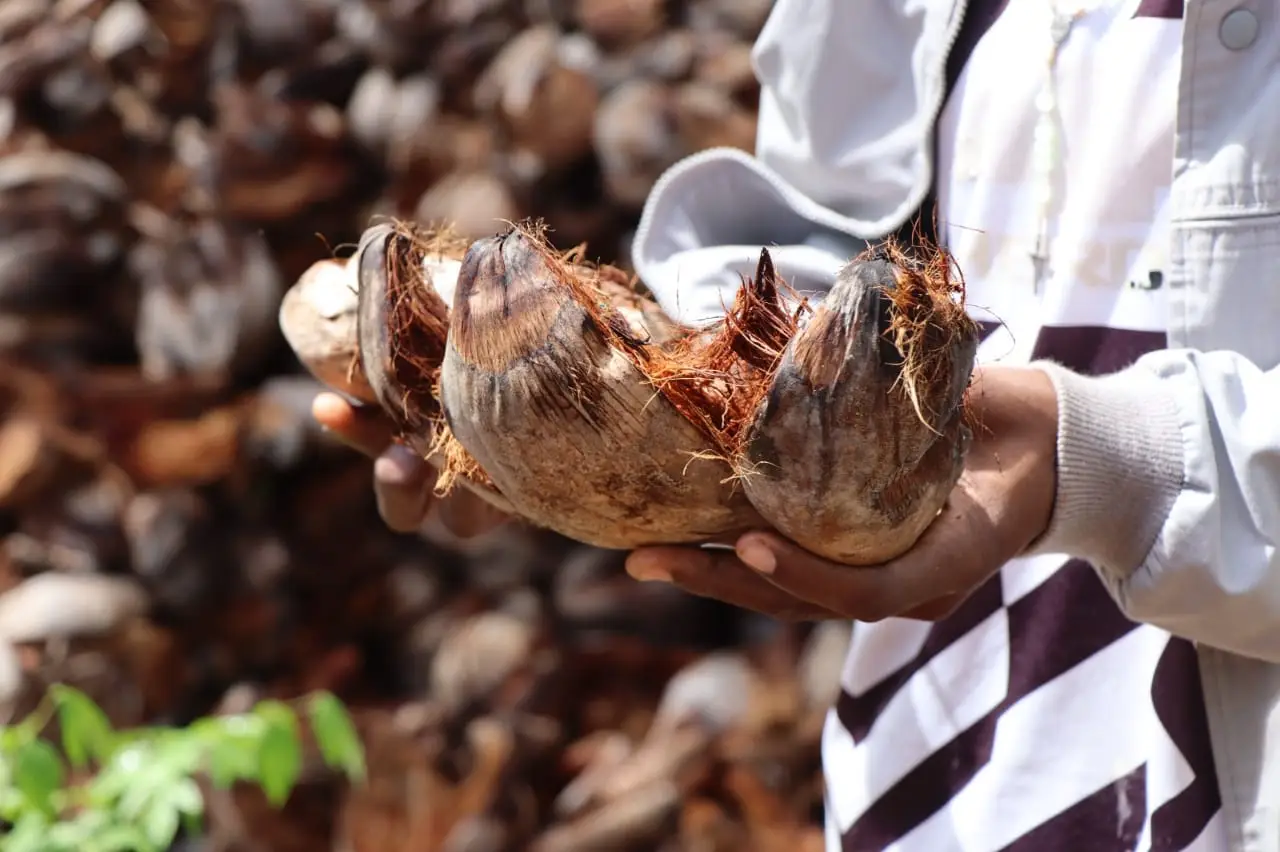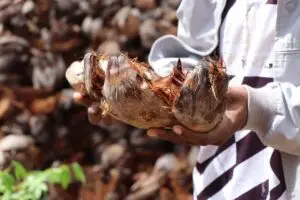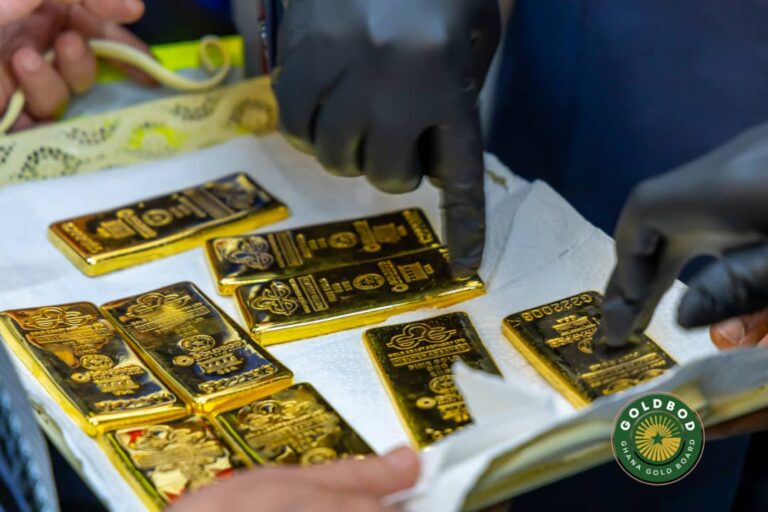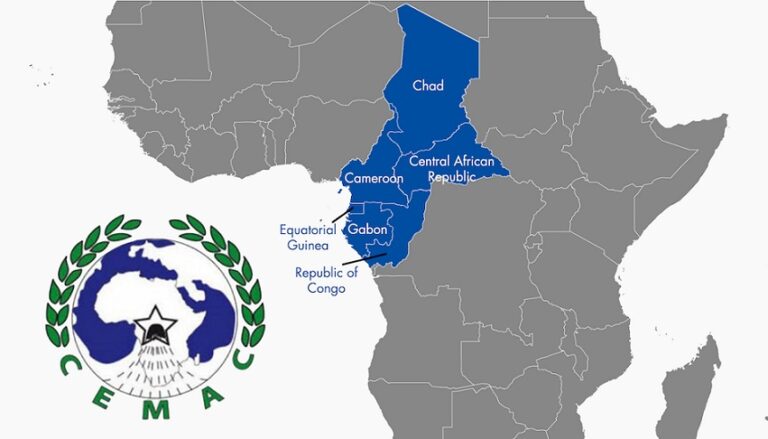
Amid the call for environment conversation and collective effort to tackle climate change, an innovative venture is transforming discarded waste into valuable products in Kwale County, coastal region of Kenya.
A creative youth has found a solution to environmental pollution in his community by recycling coconut husks, producing beautiful, eco-friendly items that enrich the soil with organic manure helping farmers improve their yields.
Founded in 2017, Koredo Koir was the idea of Kevin Omondi during his attachment at the Kenya Forestry Research Institute. Growing up in coconut-rich Kwale, Omondi was struck by the irony of Kenya importing coir products while local husks went to waste. This realization sparked an idea that soon evolved into a company.
“I started thinking about coconut husk waste in 2017, during my industrial attachment at the Kenya Forestry Research Institute in Gede. I was studying Agroforestry at the University of Eldoret and working on a tomato farm that used imported coco peat. It struck me — over 90% of coir products in Kenya were imported, yet coastal counties like Kwale had an abundance of discarded coconut husks. That’s when the vision to localize coir production and reduce environmental waste was born. I met my dream team in 2019, and from there, we built Koredo Koir,” Omondi recalls.
True to African tradition, where people often draw strength from their communities, Omondi and his co-founders named the venture Koredo after their ancestral roots in Nyanza. The ‘K’ in Koir represents Kwale, their new home and source of inspiration.
“There’s a place in Nyanza called Koredo, where all three of us co-founders trace our ancestry. We believe a company’s success depends heavily on the synergy between its founders. For us, Koredo is not just a name — it symbolizes unity and our commitment to ethical partnerships with the community and the environment,” Omondi explains.
“Among the Koredo people, there’s a deep sense of communal responsibility — and that’s something we wanted Koredo Koir to reflect. We believe in ethical partnerships with both the community and the environment to drive change. From the beginning, we wanted our name to communicate that,” adds Omondi.
With a clear market gap, the founders set out to create jobs, repurpose coconut husks into eco-friendly products like doormats, and reduce Kenya’s reliance on imported coir. Based in Golini, Matuga Sub-County, Koredo Koir tapped into Kwale’s vast resource — approximately 4.7 million coconut trees that produce around 20 tonnes of husk waste daily. According to the Kenya Coconut Development Authority (2022), over 49,000 metric tonnes of husks are typically burnt or dumped, polluting the environment without adding any value.
Beyond environmental conservation, Koredo Koir offers farmers a solution to soil degradation — a major threat to food security across Africa. Their biochar-enriched coco peat improves soil moisture retention, structure, fertility and helping farmers adapt to changing climate conditions.
“Globally, soil degradation is a growing crisis. It’s projected that by 2050, the world could lose over 90% of its fertile soil. Our biochar-enriched coco peat enhances soil health, making it ideal for erosion-prone areas and helping farmers maintain productivity despite these challenges,” Omondi explains.
The venture quickly gained local support. Omondi’s tireless efforts earned him recognition, including the Kwale Youth in Business Award (2021/22) and grants like MbeleNaBiz.
“Our durable, eco-friendly products have been warmly embraced by farmers and local households. Women and youth in Kwale have also rallied around the project — today, they make up 80% of our workforce,” he notes.
International recognition soon followed, with support from the World Bank/KYEOP, GreenBiz Incubator, and awards from the Farley Center for Entrepreneurship and Innovation and Avinger Impact Funding via The Hurt Hub@Davidson in North Carolina, USA.
To strengthen the venture, Omondi brought on board Victoria Ochieng, an environmental studies and economics student at Davidson College in the US, and Judith Owiny, a business entrepreneur. Together, they’ve steered Koredo Koir through early challenges, including limited funding, machinery shortages and skepticism over the quality of Kenyan coir.
“There’s stiff competition from sisal and synthetic alternatives and raw material shortages during droughts make scaling up tricky. Differentiation is one of the biggest challenges for startups. Our product can’t just sound good — it has to deliver results and earn farmers’ trust. Building that credibility takes time,” Omondi admits.
But the team remains undeterred. With a vision to empower over 50,000 Kenyans, Koredo Koir is expanding its production capacity, finalizing a new Coconut Husk Crushing Unit, and acquiring more machinery to extend its reach to Nairobi, Kisumu, and Murang’a. They also plan to train 5,000 youth in coir production by 2030. The company currently has 15 part-time workers, mostly women, and is led by its three directors.
“We haven’t hit full profitability yet because most revenue is reinvested to fuel growth. That’s normal for startups. I also run a small cyber café that supports my family. Startup founders must be patient and avoid putting undue pressure on themselves or their businesses,” Omondi reflects.
Mindful of Kenya’s unemployment crisis, Omondi encourages young people to use their education as a tool to identify market gaps and create solutions. His own journey — from a village in Kwale to winning global grants — inspires others to believe in local solutions with global potential.
“Jiamini (believe in yourself). Start with what’s around you — your education and grit are your tools. My journey proves that local ideas can have international impact,” he says proudly.
According to co-founder Victoria Ochieng, Koredo Koir is now exploring markets beyond Kenya to scale its impact.
“We’re looking at opportunities in other East African countries and researching international markets, especially the USA and UK, which are among the largest importers of coco peat and coir fiber,” Ochieng confirmed while receiving an award at the Avinger Impact Fund on May 1, 2025.
Koredo Koir is currently refining its biochar-enriched coco peat to deliver even greater value to farmers and aims to upcycle over 300 tonnes of coconut waste by 2030. The venture is also pursuing certification from the Kenya Bureau of Standards (KEBS) to meet industry standards and strengthen its market position.



